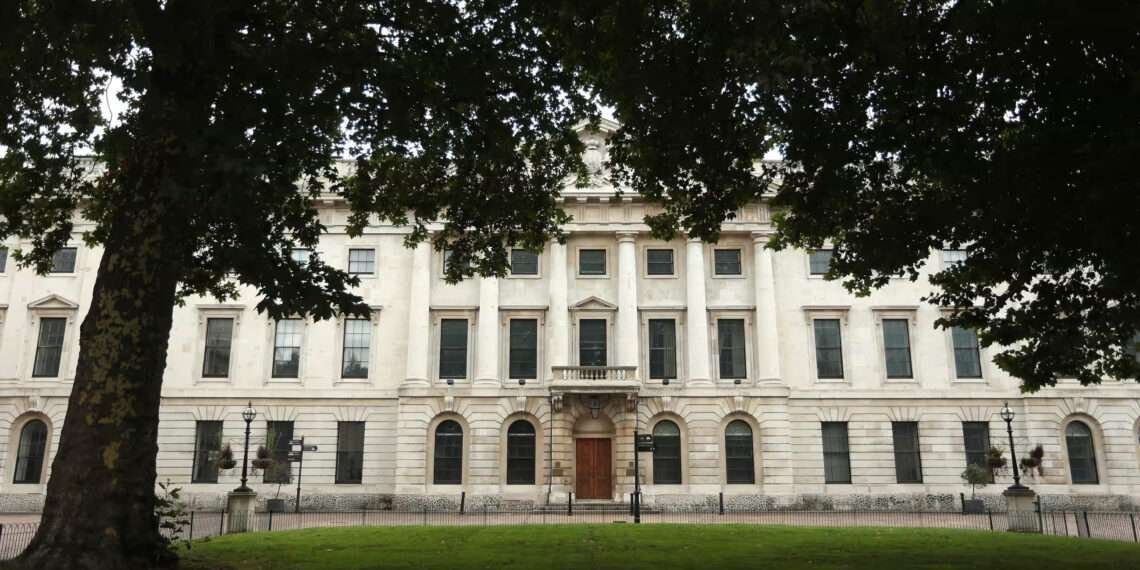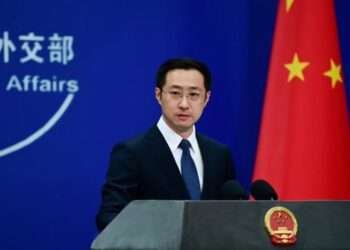The diplomatic tug-of-war between the United Kingdom and China has escalated into a full-blown standoff, with China reportedly blocking British requests to rebuild its embassy in Beijing until the UK approves China’s plans for a new mega-embassy in London.
Sources close to the discussions reveal that China’s embassy project, which has faced local opposition in east London, has become a pivotal issue in the increasingly strained UK-China relationship.
The stalemate centers on China’s proposed embassy at Royal Mint Court, a historic site near the Tower of London. China acquired the 20,000-square-meter property in 2018 for £255 million, intending to construct a vast complex that would serve as its largest embassy in Europe.
However, the plans stalled last year when Tower Hamlets Council refused planning permission, citing security concerns and strong objections from residents. The denial came amid mounting public debate about the influence of foreign nations on British soil and concerns over national security.
In response, China has resisted the UK’s requests to move forward with a long-planned reconstruction of its embassy in Beijing. One source familiar with the situation stated, “Until that one gets moving, the British embassy in Beijing won’t move.” Another source highlighted that China perceives the issue as a “reciprocal-type thing,” where both sides should ideally approve each other’s projects.
Political Pressure Mounts on UK to Approve Embassy Plans
Last month, the situation presented a particularly delicate political decision for Angela Rayner, the UK’s Deputy Prime Minister and Housing Secretary.
Rayner took over the decision from the local council, ordering a local inquiry while effectively removing control from Tower Hamlets. Now, she faces significant pressure to either approve or reject China’s embassy plan, a decision with far-reaching diplomatic implications.

Some officials argue that the initial grounds for blocking China’s embassy project in London were largely “spurious,” driven more by broader political frustrations than substantial objections.
China’s embassy has been vocal in its insistence on moving forward with the project, releasing a statement asserting that “both China and the UK need to build a new embassy in each other’s capital, and the two sides should provide facilitation to each other.”
The Foreign, Commonwealth and Development Office (FCDO) submitted a procurement notice in August, signaling the UK’s readiness to demolish and rebuild its current embassy in Beijing, a costly endeavor expected to reach £100 million.
However, the project remains dependent on Chinese planning approval, and officials close to the talks suggest that China is using the delay as leverage to expedite progress on the London embassy.
China’s Mega-Embassy Plan Sparks Controversy in London
Relations between the UK and China have soured in recent years, following concerns over human rights abuses in Xinjiang, crackdowns on civil liberties in Hong Kong, and reports of Chinese hacking activities.
China’s embassy in London, currently housed in a townhouse on Portland Place near Regent’s Park, has often been a focal point for Uyghur and Tibetan activists, underscoring the tension surrounding its operations in the UK.
Local authorities and London Mayor Sadiq Khan have declined to intervene in the matter, and after Tower Hamlets blocked the initial planning application, China opted not to appeal. Instead, Chinese officials have urged UK ministers to back a resubmitted application with assurances of government support.
China’s recent decision to reapply for planning permission, despite no major alterations to the original proposal, signals Beijing’s intent to press forward. In calling in the application, Rayner has taken on a contentious decision that could impact broader UK-China relations.
If approved, the new complex would become China’s largest embassy in Europe, with a footprint almost double that of its embassy in Washington, D.C. The site is one of the few areas in London that meets the extensive space requirements for the proposed complex.
The Ministry of Housing, Communities, and Local Government spokesperson provided a neutral statement, noting that “applications for a new Chinese embassy in Tower Hamlets have been called in for ministers to decide.” The final decision remains pending, though it is likely to stir further debate over the role of foreign embassies and the extent of diplomatic influence in the UK.
READ ALSO: Sam Jonah Urges Mindset Shift to Address Governance and Education Crisis























